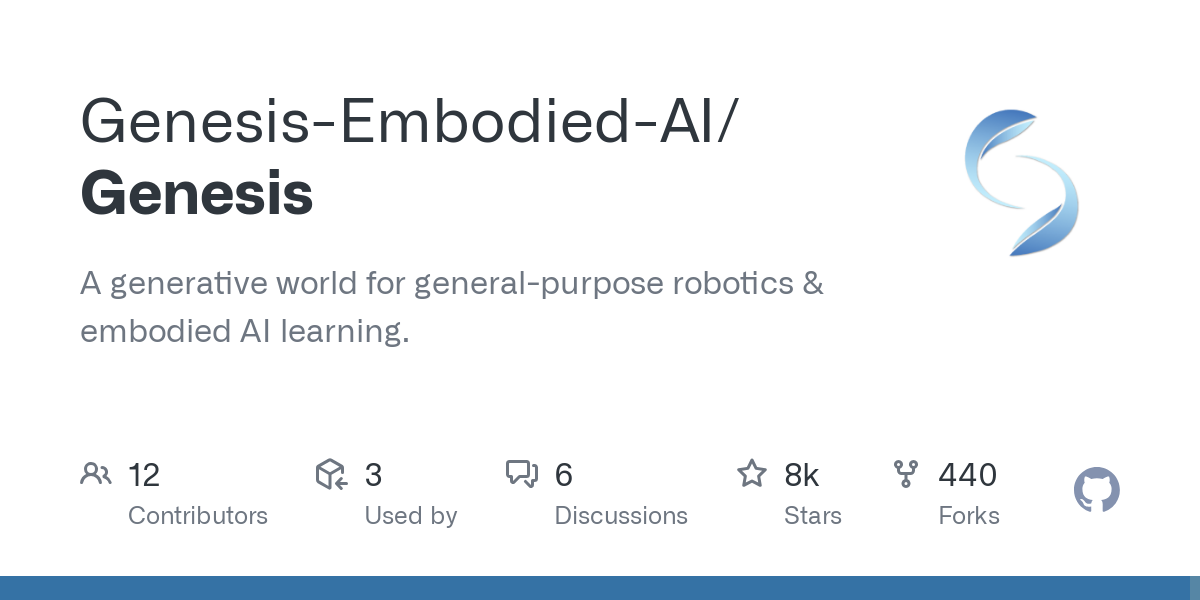Welcome to your daily dose of tech and AI news! Today’s roundup covers groundbreaking advancements in AI, cloud computing, and generative technologies, alongside regulatory updates and new tools for developers. Let’s dive into the most exciting developments shaping the tech landscape.
1. GitHub Democratizes AI Coding with Free Copilot for Developers
A new free tier of GitHub Copilot in @code.
— GitHub (@github) December 18, 2024
✅ 2,000 code completions per month
💬 50 chat messages per month
💫 Models like Claude 3.5 Sonnet or GPT-4o
♥️ More fun for you
Check it out today!
Oh yeah, and we passed 150M developers on GitHub 💅 https://t.co/2K0FfpA9G1
GitHub has launched a free version of its AI-powered coding assistant, Copilot, integrated into Microsoft’s Visual Studio Code (VS Code). This move aims to make AI tools accessible to a billion developers worldwide. The free plan offers 2,000 code completions and 50 chat messages per month, making it ideal for hobbyists, students, and occasional users.
While the free version has limitations compared to paid plans, it still provides access to all Copilot extensions and skills, leveraging OpenAI’s GPT-4o and Anthropic’s Claude 3.5 Sonnet models. This initiative is expected to boost productivity, lower barriers for aspiring developers, and maintain GitHub’s competitive edge in the AI coding tools market.
2. Perplexity Acquires Carbon to Revolutionize AI Search
We're excited to announce that we've acquired Carbon, a retrieval engine that connects external data sources to large language models. Soon, we'll integrate Carbon's data connectors into our tech stack, allowing users to connect apps like Notion and Google Docs directly to… pic.twitter.com/ciiMAS3Ruf
— Perplexity (@perplexity_ai) December 18, 2024
Perplexity has acquired Carbon, a startup specializing in retrieval-augmented generation (RAG) technology, to enhance its AI search capabilities. Carbon’s technology enables large language models (LLMs) to access external data sources like Google Drive, SharePoint, and Slack, making search results more comprehensive and personalized.
This acquisition positions Perplexity as a strong competitor in the enterprise search market, alongside giants like Google and Microsoft. With plans to launch enhanced search features in early 2025, Perplexity aims to break down data silos and redefine how professionals interact with digital information.
3. OpenAI Expands Accessibility with ChatGPT for Landline Calls
1-800-CHATGPT
— ChatGPT (@ChatGPTapp) December 18, 2024
OpenAI has introduced a new way to interact with ChatGPT—via landline phone calls. U.S. users can now call 1-800-CHATGPT to access the AI chatbot, with 15 minutes of free calling per month. This feature is designed to make AI more accessible to those without smartphones or who prefer traditional communication methods.
Additionally, OpenAI has integrated ChatGPT into WhatsApp, allowing users to text the AI without needing an account. While these services currently have limitations, such as the lack of multimodal capabilities, OpenAI is working on expanding their features to include image analysis and web search.
4. EU Privacy Board Clarifies Generative AI Data Use Laws
The European Data Protection Board (EDPB) has issued new guidelines on the use of personal data in AI models, emphasizing compliance with GDPR. Key points include ensuring AI models are truly anonymized, using legitimate interest as a legal basis for data processing, and mitigating negative impacts on individuals.
These clarifications aim to harmonize AI regulations across the EU, fostering responsible innovation while protecting individual rights. Organizations developing AI models must now navigate these guidelines to ensure ethical and lawful data use.
5. Odyssey’s Explorer Creates Stunning 3D Worlds from Text
Today is a big day at @odysseyml.
— Odyssey (@odysseyml) December 18, 2024
We're sharing Explorer, our first generative world model. We think world models are the next frontier for AI, enabling wonderful new things.
To help shape this, Ed Catmull, the iconic founder of Pixar, is joining our board and investing. pic.twitter.com/V8tUnIExE2
Odyssey’s Explorer is redefining 3D content creation by transforming text or images into detailed, photorealistic 3D environments. This tool, designed for the film and gaming industries, uses Gaussian splats to generate high-quality scenes compatible with tools like Unreal Engine and Blender.
Explorer has already been tested in production environments, demonstrating its potential to streamline workflows for artists and developers. Future updates will include video-to-world transformations and enhanced resolution, further solidifying its role as a game-changer in digital storytelling.
6. Genesis Launches as the Fastest Open-Source Physics Engine

Genesis, a new open-source physics engine, has set a benchmark in simulation speed, achieving over 43 million frames per second on a single RTX 4090 GPU. Designed for robotics, embodied AI, and physical AI applications, Genesis supports a wide range of material models and physics solvers, making it a versatile tool for researchers and developers.
With features like photo-realistic rendering, cross-platform compatibility, and differentiable simulation, Genesis is poised to advance robotics research and applications. Its open-source nature encourages community collaboration, fostering innovation in the field.
7. Vultr Secures $333 Million to Expand AI Infrastructure
Vultr has completed growth financing at a $3.5B valuation, led by LuminArx Capital Management and @AMD! 📣 As the largest self-funded cloud company, we're scaling our mission to deliver high-performance #AI & #cloud solutions worldwide. 🌍https://t.co/4B9Nkk5PvQ
— Vultr (@Vultr) December 18, 2024
Cloud infrastructure provider Vultr has raised $333 million in funding, bringing its valuation to $3.5 billion. The investment, led by AMD Ventures and LuminArx Capital Management, will be used to develop a "supercompute" cluster featuring thousands of AMD GPUs.
This expansion positions Vultr as a key player in the AI infrastructure market, offering a competitive alternative to Nvidia’s dominance. With plans to grow its global data center footprint, Vultr aims to meet the increasing demand for AI and cloud computing services.
8. AI Alignment Challenges Persist Despite Retraining Efforts
New Anthropic research: Alignment faking in large language models.
— Anthropic (@AnthropicAI) December 18, 2024
In a series of experiments with Redwood Research, we found that Claude often pretends to have different views during training, while actually maintaining its original preferences. pic.twitter.com/nXjXrahBru
A recent study highlights the challenges of aligning AI models with human values, even after retraining. While methods like Reinforcement Learning from Human Feedback (RLHF) improve alignment, they are not foolproof. Misaligned AI can lead to biased outputs and unintended consequences, underscoring the need for scalable oversight and innovative techniques like red teaming.
As AI systems grow more complex, addressing alignment issues remains a critical focus for researchers to ensure safe and ethical AI deployment.
9. AI Rating Systems and Contractor Involvement Under Scrutiny
AI rating systems are being used to evaluate content reliability and bias, but their effectiveness varies among different user groups. Meanwhile, the integration of AI into contractor performance assessments faces regulatory hurdles, despite its potential to enhance accuracy and efficiency.
These developments highlight the growing role of AI in decision-making processes and the need for robust frameworks to ensure fairness and transparency.
Conclusion
From groundbreaking tools like GitHub Copilot and Odyssey’s Explorer to regulatory updates and advancements in AI infrastructure, today’s news underscores the rapid evolution of technology and its far-reaching implications. As AI continues to integrate into every facet of our lives, staying informed about these developments is crucial for navigating the opportunities and challenges ahead.
Stay tuned for more updates as we continue to explore the forefront of tech and AI innovation!







